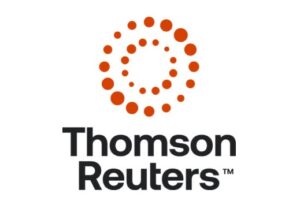3 Questions For A Court Access Crusader (Part II)
We can all hope that AI can be a boon to the challenging task of assimilating an ever-growing set of data generated by the legal industry.
 Earlier this month, I presented Part I of my written interview with a co-founder and the executive director of Free Law Project (“FLP”), Michael Lissner. That column presented his answer to the first of my three questions and focused on how FLP has helped the general public get access to legal information through their various offerings. What follows are Michael’s answers to my remaining two questions. As usual, I have added some brief commentary to his answers below, but have otherwise presented his answers as he provided them.
Earlier this month, I presented Part I of my written interview with a co-founder and the executive director of Free Law Project (“FLP”), Michael Lissner. That column presented his answer to the first of my three questions and focused on how FLP has helped the general public get access to legal information through their various offerings. What follows are Michael’s answers to my remaining two questions. As usual, I have added some brief commentary to his answers below, but have otherwise presented his answers as he provided them.
Gaston Kroub: What can law firms and corporate legal departments be doing to help support FLP’s efforts?
Michael Lissner: Law firms and corporate legal departments can support the Free Law Project in several important ways. First, they can contribute by sharing legal data, such as court documents and filings, to help us expand our databases, especially in areas where access is still limited. They can also collaborate with us by adopting and promoting the use of open-source legal tools like CourtListener or RECAP, helping drive awareness and usage across the legal industry. Additionally, financial support or pro bono legal assistance can be invaluable, especially for our advocacy work around legal transparency and reform, such as our efforts to reduce PACER fees. Finally, law firms can play a key role in policy reform by joining us in advocating for greater public access to legal records, using their influence to push for changes that align with our mission of democratizing the law.

Curbing Client And Talent Loss With Productivity Tech
GK: It is hard to imagine many firms that are not interested in supporting greater access and transparency in law. That said, if you are at a firm that is not using or promoting the use of tools like CourtListener or RECAP, then it might be time to make a change. If getting more senior personnel to do so would be a challenge, then why not try to have associates and summer associates do so? Likewise, for those firms looking for a worthy place to direct charitable contributions or pro bono hours, the FLP should be top of mind as a destination for those worthy goals. Everyone benefits when the rule of law is buttressed by an informed citizenry – and the FLP is on the front lines trying to make that happen.
GK: What opportunities and challenges do you and your team at the FLP look forward to tackling in the coming years?
ML: One of the biggest challenges we’re excited to tackle is expanding access to more court records and legal data, particularly at the state and local levels, where transparency can still be limited. Scaling our databases and ensuring real-time access to court documents will require technical innovation and collaboration. Here, AI has huge potential to advance our work at the Free Law Project. It can help us process and organize vast amounts of legal data more efficiently, automating tasks like summarizing opinions or identifying patterns in case law. AI-powered search tools could make legal research faster and more intuitive, allowing users to ask complex legal questions in plain language. It could also help uncover systemic issues, like biases in rulings, which supports our advocacy for reform. Overall, AI can help us keep up with the growing amount of legal data while making the law more accessible and transparent.
Another challenge is improving the usability of our tools — making them more accessible not just to legal professionals but to the general public, so anyone can easily interact with the legal system. We’re also focused on pushing for policy reforms, especially around PACER fees and public access to legal documents, which will require ongoing advocacy and, likely, litigation. Balancing these goals while maintaining our commitment to open-source development and privacy will be key, and we look forward to navigating these complex challenges as we continue growing.
Sponsored

Tackling Deposition Anxiety: How AI Is Changing The Way Lawyers Do Depositions

Thomson Reuters' Claims Explorer: A Powerful Tool For Legal Claim Identification


Curbing Client And Talent Loss With Productivity Tech
Law Firm Business Development Is More Than Relationship Building
GK: Quite a full agenda on the table for Michael and his colleagues at the FLP. We can hope, as they do, that AI can be a boon to the challenging task of assimilating an ever-growing set of data generated by the legal industry. It would also be great to see the general public become more comfortable with legal material, especially in our age of media distrust and partisan politics. An informed citizenry that is comfortable accessing and analyzing a Supreme Court decision, for example, is a lot better than one that can have viewpoints manipulated by interested parties — irrespective of whether those parties fall on the right or the left of the political spectrum. Considering the FLP’s success to date, we can be assured that their efforts will continue to benefit us all over time.
My thanks to Michael for the insights and cooperation, and I wish him and his FLP colleagues continued success with their important work. Those inclined to provide financial support for their efforts will be making an impactful choice and I hope that we will continue to see FLP innovate in the service of their mission. I am always open to conducting interviews of this type with other IP thought leaders, so feel free to reach out if you have a compelling perspective to offer.
Please feel free to send comments or questions to me at [email protected] or via Twitter: @gkroub. Any topic suggestions or thoughts are most welcome.
Gaston Kroub lives in Brooklyn and is a founding partner of Kroub, Silbersher & Kolmykov PLLC, an intellectual property litigation boutique, and Markman Advisors LLC, a leading consultancy on patent issues for the investment community. Gaston’s practice focuses on intellectual property litigation and related counseling, with a strong focus on patent matters. You can reach him at [email protected] or follow him on Twitter: @gkroub.
Sponsored








